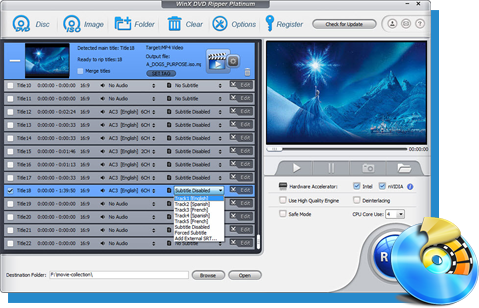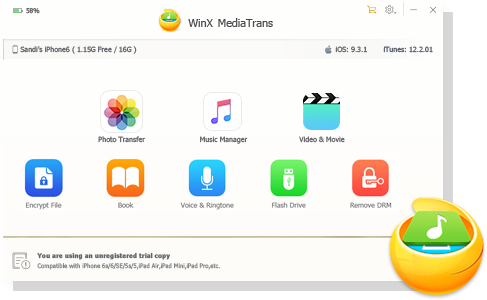How Much Is a MB in KB? How Long will 1MB of Data Last?
One common unit you'll encounter is the megabyte, often abbreviated as MB. It is a unit of digital information storage that is commonly used to quantify the size of files, documents, or data. But how much is a MB? One megabyte is equivalent to 1,000,000 bytes. How long will 1MB of data last? Let's look at this fundamental unit of digital information and explore its significance in various contexts.
Compress Videos from MB to KB for Storage Space Saving
Free download Winxvideo AI and effortlessly compress large MB of video files into kilobytes (KB), all while maintaining exceptional video quality. Whether you're a content creator, a mobile user seeking to maximize storage, or a business professional prioritizing swift data transfer, the video compressor delivers unmatched performance.
Table of Contents
Part 1. Definition: What is MB
The term "megabyte" is commonly employed to denote either one million bytes (10002) or 10242 bytes. It's defined as one million bytes, and it's represented by the symbol MB. The origin of using base 1024 stems from the need for technical terminology to express byte multiples in powers of 2, which lacked a convenient name. Since 1024 (210) closely approximates 1000 (103), akin to the SI prefix "kilo-", it became a practical way to signify binary multiples. This definition aligns with the SI prefix "mega," which denotes a multiplier of 1,000,000 (10^6) in the International System of Units.
In 1999, the International Electrotechnical Commission (IEC) introduced standards for binary prefixes, stipulating the use of "megabyte" for 10002 bytes, and "mebibyte" for 10242 bytes. By the close of 2009, this IEC Standard had been embraced by prominent organizations like the IEEE, EU, ISO, and NIST. Nevertheless, the term "megabyte" persists in common usage with varying interpretations.
See also: How Much is a GB of Data?

Part 2. How Much Is 1MB in KB
In accordance with the International System of Units (SI) and the International Electrotechnical Commission (IEC), 1 megabyte (MB) is defined as 1,000,000 bytes, denoted as 10^6 B. This standard is commonly applied in computer networking, as well as in various storage media, including hard drives, flash-based storage, and DVDs. It aligns harmoniously with the use of SI prefixes in computing, such as CPU clock speeds and performance metrics.
In the realm of computer memory, specifically as recognized by Microsoft Windows, 1 megabyte (MB) is defined as 1,048,576 bytes, which is equivalent to 2^20 bytes. This definition corresponds to the unambiguous binary unit known as the mebibyte (MiB). According to this convention, 1 gigabyte (GB) is constituted of 1,024 mebibytes (MiB), signifying that 1 gigabyte (GB) is 2^30 bytes, or 1 gibibyte (GiB).
Read More: How Many Megabytes in a Gigabyte?
Part 3. How Long Will 1MB of Data Last
The duration of 1MB of data's effectiveness depends on its use. Browsing a webpage, it can load one or several pages, contingent on complexity and media content size. For audio, it equates to about a minute of low-quality music, while higher quality demands more data. Video streaming, at low quality, yields only a few seconds, with higher quality requiring more data.
In essence, the duration of 1MB's usefulness varies with the specific task and content quality. A megabyte is a unit of digital information, encompassing roughly a million bytes. As a reference, a minute of MP3 audio occupies approximately 1MB, and a high-resolution photo download or upload uses a similar amount. To illustrate, attempting to upload/download high-res images with just 1MB won't suffice. Similarly, attempting to manage a 2-3 minute video in such limited data is unattainable.

How much is a MB of data usage? Data usage for video streaming can vary significantly based on factors like resolution and streaming quality. As a rough estimate, standard definition (SD) video may use about 2-3 MB per minute, while high definition (HD) video can use considerably more, sometimes over 10 MB per minute.
Video calling apps like Zoom, Skype, or FaceTime have varying data usage rates. The amount of data consumed during a video call depends on the resolution, frame rate, and compression used by the application. On average, video calls can range from a few MB to tens of MB per minute.
How much is 10MB of data? 10 megabytes (10 MB) of data is equivalent to 10,000,000 bytes. You can stream music for about 100-200 minutes at standard quality, or 30-50 minutes of standard definition (SD) video, or read approximately 100,000 text-only web pages.
Part 3. FAQs about How Much Is A MB
Is 1MB of data a lot?
No, 1MB of data is not considered a large amount in the context of modern computing and internet usage. It's relatively small compared to the data requirements of many media-rich activities like streaming videos or downloading high-resolution images. MB will only allow for a few seconds of video, even at low quality.
Which is bigger, MB or GB?
GB. 1 gigabyte (GB) is equal to 1,000 megabytes (MB) in the metric system. In computing and digital storage, it's often used in a binary context where 1 gigabyte is equivalent to 1,024 megabytes. This is due to the way computers use binary numbering. In this context, a gigabyte is sometimes referred to as a gibibyte (GiB) to avoid confusion with the metric definition.
How many MB is a 1GB?
One gigabyte (GB) is equal to 1,000 megabytes (MB) in the metric system. In computing, it's also commonly used to refer to 1,024 megabytes due to the binary nature of digital storage. This is often denoted as a gibibyte (GiB) to distinguish it from the metric definition.
1 gigabyte (GB) = 1,000 megabytes (MB) in the metric system.
1 gigabyte (GB) = 1,024 megabytes (MB) in the binary system (gibibyte, GiB).




















